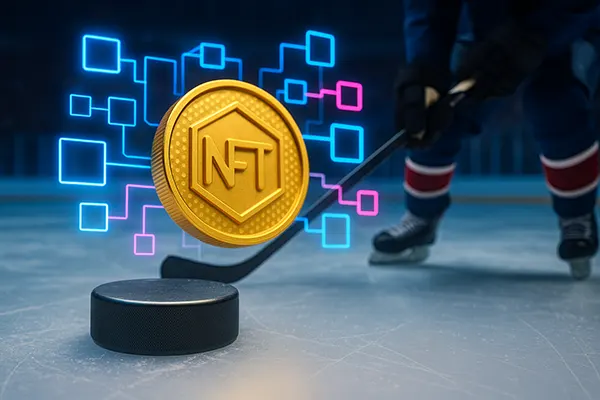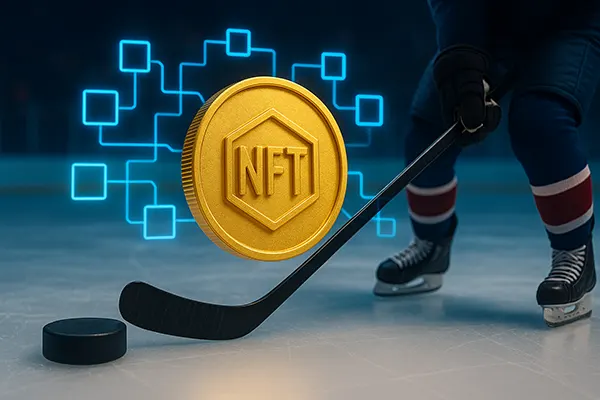Development of NFT and Digital Asset Betting in the Ice Hockey Industry

The rapid evolution of blockchain technologies and tokenised economies has significantly influenced entertainment and sports worldwide. In recent years, ice hockey, a sport with deep traditions and global fan engagement, has seen the emergence of non-fungible tokens (NFTs) and digital assets as both collectible and betting instruments. This trend reflects not only the growing interest in digital ownership but also the ongoing transformation of the sports betting market.
Integration of Digital Assets in Hockey Betting
One of the most notable aspects of digital innovation in hockey is the use of NFTs for betting and fan engagement. Teams and leagues are experimenting with blockchain-based products that allow fans to purchase unique digital items tied to historic games, player highlights, or team memorabilia. These items are not only collectibles but also play a role in betting markets, where their value can be influenced by player performance or match outcomes.
Several platforms have already introduced hockey-specific NFTs linked to statistics, enabling a blend of fantasy sports mechanics with blockchain verification. For example, digital player cards can rise or fall in value depending on how the player performs during the season, creating a dynamic market similar to stock trading.
The ability to trade, sell, or use these digital assets within decentralised betting systems represents a new dimension of interactivity for fans. Unlike traditional wagers, NFT-based stakes provide ownership of an asset that retains value beyond a single game.
Challenges and Regulatory Considerations
Despite the promise of NFT betting in hockey, there are significant hurdles related to regulation and market acceptance. Betting with digital assets often crosses jurisdictions where laws on cryptocurrency and online gambling differ. As a result, both fans and operators must navigate complex legal frameworks to ensure compliance.
Another important factor is consumer protection. The volatility of NFTs and cryptocurrencies presents risks for bettors unfamiliar with the market. Governing bodies and betting operators are increasingly focused on education, transparency, and responsible gambling practices to protect users from financial harm.
Furthermore, technical scalability remains an issue. Blockchains need to handle high volumes of transactions during major tournaments like the Stanley Cup playoffs. Ensuring security, efficiency, and fairness in such systems is crucial to the long-term success of digital betting in hockey.
Fan Engagement through Tokenisation
Hockey clubs and leagues are leveraging tokenisation not just for betting but also to enhance fan loyalty. Digital collectibles tied to iconic goals, legendary players, or milestone games provide fans with exclusive ownership of sports history. This creates emotional and financial value, making fans more connected to their teams.
Tokenised betting also transforms how fans participate in matches. Instead of placing standard wagers, fans can stake digital assets that represent specific in-game events such as penalty kills, goals scored, or saves by goaltenders. These mechanics introduce micro-betting opportunities aligned with blockchain transparency.
The wider ecosystem also includes fan voting mechanisms powered by tokens. For example, supporters might influence non-critical decisions such as jersey designs or pre-match entertainment, reinforcing the sense of community around the sport.
Economic Impact on Clubs and Leagues
By integrating NFTs and tokenised betting, hockey organisations gain additional revenue streams. Sales of limited-edition digital assets provide immediate income, while secondary market trades generate royalties. This diversifies financial strategies for clubs, particularly in smaller leagues where traditional ticket sales may be insufficient.
Leagues benefit from global reach, as blockchain-based products are borderless and attract audiences outside traditional hockey markets. Digital betting tools make the sport more accessible to younger demographics accustomed to online entertainment and crypto economies.
However, monetisation must be balanced with ethics and integrity. Over-commercialisation of NFTs without real value risks damaging trust among fans, while betting integration requires strict oversight to avoid conflicts of interest.

Future Outlook of NFT Betting in Hockey
Looking ahead, the hockey industry is likely to see a continued fusion of blockchain, gaming, and sports betting. Strategic partnerships between leagues, blockchain developers, and betting companies will shape how digital assets are integrated into mainstream fan experiences. Pilot projects in North America and Europe are already testing scalable models that could become standards by the end of the decade.
In addition, technological advances such as layer-2 scaling solutions and cross-chain interoperability will reduce transaction costs and improve accessibility. This will encourage more users to participate in NFT-based betting without facing prohibitive fees or technical barriers.
Education will also be a cornerstone of future development. Fans need to understand the risks and opportunities of betting with NFTs to make informed choices. As adoption grows, responsible frameworks will ensure that digital betting becomes a sustainable part of hockey culture rather than a short-lived trend.
Globalisation and Market Expansion
The globalisation of hockey betting through digital assets presents exciting possibilities. Markets in Asia and Eastern Europe, where hockey has growing popularity, may embrace tokenised betting as a gateway to engage with the sport. Blockchain allows seamless participation across borders, making it easier for international fans to interact with leagues they previously could not access.
Collaborations with other sports and entertainment industries may also fuel growth. Cross-promotions, such as joint NFT collections featuring hockey and esports, could expand audiences and create hybrid fan communities. This trend demonstrates the interconnectedness of digital economies.
Ultimately, the adoption of NFTs and digital assets in hockey betting will depend on trust, regulation, and innovation. By addressing risks and focusing on long-term value, the industry has the potential to redefine the fan experience and establish a sustainable digital future.




